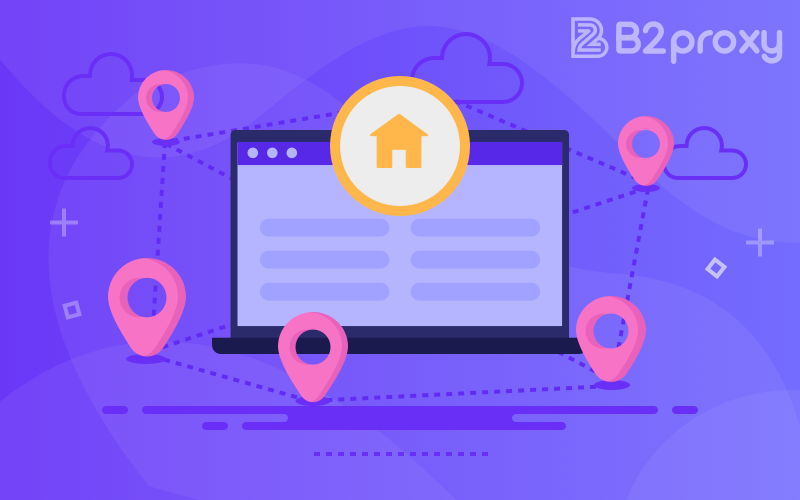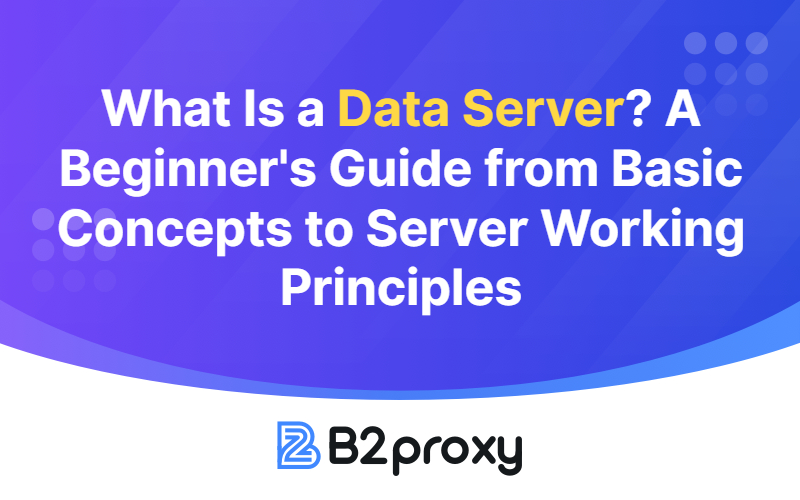
Proxy IP and Cloud Computing: The Best Combination for Enhancing Data Collection and Network Security
Proxy IP and Cloud Computing: The Best Combination for Enhancing Data Collection and Network Security
 September 10.2025
September 10.2025

<p>In today’s fast-growing digital economy, cloud computing has become the primary way for enterprises and individuals to obtain computing resources. From e-commerce websites to big data analysis platforms, from AI training to cross-border services, nearly all business activities rely on the cloud. However, when accessing and managing cloud resources, the importance of proxy IPs is often overlooked. This article will guide you through how <a href="https://www.b2proxy.com/" rel="noopener noreferrer" target="_blank">proxy IPs</a> integrate with cloud computing, their application scenarios, and future development trends.</p><p><br></p><h2>Background: Proxy IP and Cloud Computing</h2><p>The core value of cloud computing lies in <strong>elastic scalability, resource sharing, and global coverage</strong>. Whether deploying applications, storing data, or conducting distributed computing, cloud platforms can quickly respond to demand. At the same time, needs such as data collection, security protection, and cross-border access are increasing—and this is where proxy IPs play an essential role.</p><p>A proxy IP acts as a “relay station” between the user and the target server. By hiding the real IP, offering multi-regional nodes, and supporting large-scale concurrent access, it provides strong support for network communication and data management within cloud computing.</p><h2><br></h2><h2>What Is a Proxy IP?</h2><p>A proxy IP is the intermediary between the user and the target server. It can:</p><p>● <strong>Hide real identity</strong>: Protect privacy during data collection or access.</p><p>● <strong>Bypass geo-restrictions</strong>: Obtain localized data from different countries and regions.</p><p>● <strong>Distribute network load</strong>: Improve success rate and stability through pooling and rotation mechanisms.</p><p>In cloud computing, proxy IPs are often used with large-scale tasks, distributed crawlers, and security protection.</p><p><br></p><h2>Advantages of Combining Proxy IP with Cloud Computing</h2><h3>1. Data Collection and Big Data Analysis</h3><p>In big data and AI training, data is the most critical fuel.</p><p>● <strong>Advantage</strong>: Proxy IPs help enterprises collect information from global websites while avoiding IP bans caused by frequent access.</p><p>● <strong>Example</strong>: An e-commerce company uses residential proxy IPs to obtain regional pricing data for market analysis and dynamic pricing.</p><p><br></p><h3>2. Cloud Platform Security Protection</h3><p>Cloud applications face risks such as DDoS attacks, account theft, and data leaks.</p><p>● <strong>Advantage</strong>: Proxy IPs can hide the real server address and reduce the risk of direct attacks.</p><p>● <strong>Example</strong>: A financial enterprise deploys a proxy layer in its cloud application to filter potential malicious traffic.</p><p><br></p><h3>3. Global Business and Cross-Border E-Commerce</h3><p>Cross-border e-commerce and overseas operations require fast and stable connections to customers worldwide.</p><p>● <strong>Advantage</strong>: Proxy IPs provide global nodes to ensure smooth page loading and payment system operation in different regions.</p><p>● <strong>Example</strong>: A cross-border e-commerce platform uses proxy IPs to optimize the access experience for European and Southeast Asian users, boosting conversion rates.</p><p><br></p><h3>4. Cloud-Native and Microservices Environments</h3><p>In cloud-native architectures, applications are often composed of multiple microservices.</p><p>● <strong>Advantage</strong>: Proxy IPs help services communicate securely and stably, while also playing a role in load balancing.</p><p>● <strong>Example</strong>: An AI company uses proxy IPs to establish data collection channels across cloud nodes, ensuring continuous training data for models.</p><p><br></p><h2>Application Strategies of Proxy IP in Cloud Computing</h2><p>1. <strong>Pooling management</strong>: Use proxy pools for dynamic IP rotation, suitable for large-scale crawlers or task distribution.</p><p>2. <strong>Geo-targeting</strong>: Select proxy IPs from target regions to enhance localization.</p><p>3. <strong>Encrypted communication</strong>: Combine HTTP with proxy IPs to strengthen data transmission security.</p><p>4. <strong>Elastic scaling</strong>: Allocate proxy resources on demand in the cloud, perfectly aligning with cloud scalability.</p><p><br></p><h2>Future Trends of Proxy IP in Cloud Computing</h2><p>● <strong>Data compliance and privacy protection</strong>: Proxy IPs will focus more on legality and compliance, especially in cross-border data transmission.</p><p>● <strong>AI and automation integration</strong>: Proxy IPs will integrate with intelligent scheduling and automated crawling platforms to improve efficiency.</p><p>● <strong>IPv6 proxy adoption</strong>: With the full rollout of IPv6, proxy IPs will gradually shift toward IPv6 to meet IoT and 5G needs.</p><p>● <strong>Enterprise-level security proxies</strong>: Cloud providers and enterprises will increasingly use proxies as a security barrier to defend against advanced cyber threats.</p><p><br></p><h2>FAQ</h2><p><strong>1. Why do cloud computing users need proxy IPs?</strong></p><p>Answer: Proxy IPs improve data collection efficiency, enhance security, and optimize cross-border access experiences.</p><p><strong>2. Will using proxy IPs reduce access speed?</strong></p><p>Answer: High-quality proxy IPs usually have optimized bandwidth and node selection mechanisms. Instead of slowing speed significantly, they can actually improve stability.</p><p><strong>3. Are proxy IPs in cloud computing suitable for individual developers?</strong></p><p>Answer: Yes. Individual developers can use proxy IPs for data collection, API testing, or multi-region access to reduce risks.</p><p><br></p><h2>Conclusion</h2><p>Proxy IPs are not just an “invisibility cloak” for network communication; in the cloud computing era, they are also a key tool for data collection, business expansion, and security protection. Whether for enterprises conducting large-scale data analysis or cross-border e-commerce platforms optimizing user experience, the combination of proxy IPs and cloud computing brings tremendous value. Looking ahead, with the adoption of IPv6 and the advancement of AI-driven scheduling, proxy IPs will play an even greater role in cloud computing.</p>
You might also enjoy

What Is a Dynamic Residential IP? A Detailed Guide to Cross-Border E-commerce Account Isolation and Risk Control Solutions
Breaks down dynamic residential IPs, highlighting their role in account isolation, risk control, and building secure cross-border e-commerce systems.
February 27.2026
How to Access TorrentGalaxy Stably? 2026 Latest Working Links and Proxy Solutions Explained
A practical 2026 guide to accessing TorrentGalaxy reliably, explaining domain shifts, ISP restrictions, proxy methods, and security considerations.
February 27.2026
What Is a Data Server? A Beginner's Guide from Basic Concepts to Server Working Principles
Beginner's guide to data servers, covering core concepts, working principles, architecture, stability factors, and future cloud-driven trends.
February 26.2026






